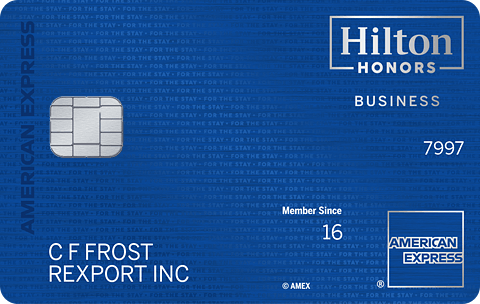- myFICO® Forums
- FICO Scoring and Other Credit Topics
- General Credit Topics
- How to handle being sued by Discover? Is this lawy...
- Subscribe to RSS Feed
- Mark Topic as New
- Mark Topic as Read
- Float this Topic for Current User
- Bookmark
- Subscribe
- Mute
- Printer Friendly Page
How to handle being sued by Discover? Is this lawyer's advice correct?
Is your credit card giving you the perks you want?
Browse credit cards from a variety of issuers to see if there's a better card for you.
- Mark as New
- Bookmark
- Subscribe
- Mute
- Subscribe to RSS Feed
- Permalink
- Report Inappropriate Content
How to handle being sued by Discover? Is this lawyer's advice correct?
I recently found this advice from a Texas attorney to a personal being sued by Discover on a legal website. Is it actually correct?
"If you can't afford much, and if you are 'Judgment Proof' (meaning all you own is your 1 house, your own car, and less than $50,000 of personal property, including any retirement savings) then you could take the Judgment and they'd never collect it. So if that's your situation, you could just not show up and let the Judgment sit there and they'd never collect. Of course, if you later get more money, they could use the Judgment to garnish your bank account and/or foreclose on any non-homestead property you own."
I'm in a similar boat as the person asking the question to the lawyer. I don't know that I'll follow this advice, but I would like to know if it is true at least.
My background: I am self-employed. I have $50,000 in Credit Card debt with $8,000 of it being with Discover and the rest scattered over many more cards. I have never made a late payment, but I have never been able to pay over the minimum for the last 36 months either. So I am paying huge interest for basically no reason other than to maintain the debt. The total amount is barely decreasing with my minimum payments. I pay over $1200 a month, but it's scattered over many cards. For example I pay $170 a month on Discover and the debt goes down $30.
My business isn't doing as good as it used to either, so I can now not really afford to even make the minimums anymore. I am considering just walking away from all the debt. My business pays out to me in the form of royalties which are deposited directly into my bank account each month. At the end of the year I get 1199 forms for taxes.
I don't mind if my credit is ruined for 7 years. About 18 years ago I ran up 6000 in debt and walked away from it. After 7 years it was gone from my credit reports and more credit was extended to me as you see here. I did PIF in every month until I ran into some crises and now I am stuck on this treadmill. I would walk away from my debt again now, but I worry with these high amounts they will get a judgment. That doesn't bother me either necessarily. If I have money later and have to pay that is acceptable. Now I don't have the money.
Here's the issue: if they get judgements that allow them to seize my bank accounts I will be stranded overseas with absolutely no money. This is obviously not an option. But now I read that they will consider me judgement proof and not seize accounts with an income like I have (under 50k, no house, sort of own a car). So, is this true? Before I really was judgement proof: no property, no car, not even a bank account. Now I have a bank account and money is regularly deposited into it.
I am from Pennsylvania. My mailing address is a post box in Michigan. My bank account was opened in another state entirely. I currently live outside of the US. I don't know where I would be sued, if I was sued. Don't know where I'd be served either.
I don't own any property in the US or anywhere else. I rent my home here outside of the US and pay with cash. I have a car that is about half way paid off back in the US that I don't drive since I am not there. I live off of cash obviously since my credit is all maxed out and has been for years.
My income is about 24,000 a year. More than enough to live here. Not nearly enough to live back home. Not enough to live anywhere if my bank accounts are seized since that will leave me with $0.
I can't file for bankruptcy. I'm not in the US, I don't have the ability to get there, and I doubt I would be approved for it anyway. I do have income as I said. I am not interested in getting more credit, at least not for the next 7 years. I am not worried about damaging my credit score.
I realize some may think it would be morally wrong to walk away from the debt. No offense to anyone, but I'm not really interested in that sort of ethical discussion. I have my own views on the subject. The real question that could me and possibly others, and at least clarify the actual laws (since morals are not enforceable) is whether or not what the attorney has written is true.
Thank you for reading and weighing in with your thoughts.
- Mark as New
- Bookmark
- Subscribe
- Mute
- Subscribe to RSS Feed
- Permalink
- Report Inappropriate Content
Re: How to handle being sued by Discover? Is this lawyer's advice correct?
That person is wrong. As long as you have assets, a judgement can be collected from you. There are exceptions, such as if your income is so low that a garnishment would make you unable to live. Also, any federal or state monies such as SSI, disability, veteran, state/federal retirement would be unable to be collected on. I believe child support is also included.
Seeing as how you don't live in the U.S., it doesn't really matter where they serve you as you won't receive it. If after several attempts to serve they are unable to find you, they can request from the judge to publish it in the paper so that they can move forward.


- Mark as New
- Bookmark
- Subscribe
- Mute
- Subscribe to RSS Feed
- Permalink
- Report Inappropriate Content
Re: How to handle being sued by Discover? Is this lawyer's advice correct?
Thank you very much for the information.
I don't know if I have assets. I don't think I do. I have no house or property, no savings, no retirement plan, nothing. I am paying off a car worth 10k that I owe 12k on. I have a bank account with a current balance of $22. I receive my royalties there each month via deposit and I take all the money out over the next 2-3 days.
I do maintain a post box there in the US, which is the address all credit cards have on me. Could I not be served by mail there?
In my home state of Pennsylvania debtors are not allowed to attach wages, but they can take money out of bank accounts unless they are shared with a spouse or receive deposits of Social Security payments. I don't know the rules in Michigan where my post box is located. I don't know the rules in the state where my bank is located either. Which rules would apply anyway?
Supposing that I was eventually served, then a judgement entered, what is the likelihood my bank account could be frozen? At the earliest, how long could it take?
Do you see any options for me other than walking away from this debt?
Thanks again.
- Mark as New
- Bookmark
- Subscribe
- Mute
- Subscribe to RSS Feed
- Permalink
- Report Inappropriate Content
Re: How to handle being sued by Discover? Is this lawyer's advice correct?
@Anonymous wrote:I recently found this advice from a Texas attorney to a personal being sued by Discover on a legal website. Is it actually correct?
"If you can't afford much, and if you are 'Judgment Proof' (meaning all you own is your 1 house, your own car, and less than $50,000 of personal property, including any retirement savings) then you could take the Judgment and they'd never collect it. So if that's your situation, you could just not show up and let the Judgment sit there and they'd never collect. Of course, if you later get more money, they could use the Judgment to garnish your bank account and/or foreclose on any non-homestead property you own."
I'm in a similar boat as the person asking the question to the lawyer. I don't know that I'll follow this advice, but I would like to know if it is true at least.
My background: I am self-employed. I have $50,000 in Credit Card debt with $8,000 of it being with Discover and the rest scattered over many more cards. I have never made a late payment, but I have never been able to pay over the minimum for the last 36 months either. So I am paying huge interest for basically no reason other than to maintain the debt. The total amount is barely decreasing with my minimum payments. I pay over $1200 a month, but it's scattered over many cards. For example I pay $170 a month on Discover and the debt goes down $30.
My business isn't doing as good as it used to either, so I can now not really afford to even make the minimums anymore. I am considering just walking away from all the debt. My business pays out to me in the form of royalties which are deposited directly into my bank account each month. At the end of the year I get 1199 forms for taxes.
I don't mind if my credit is ruined for 7 years. About 18 years ago I ran up 6000 in debt and walked away from it. After 7 years it was gone from my credit reports and more credit was extended to me as you see here. I did PIF in every month until I ran into some crises and now I am stuck on this treadmill. I would walk away from my debt again now, but I worry with these high amounts they will get a judgment. That doesn't bother me either necessarily. If I have money later and have to pay that is acceptable. Now I don't have the money.
Here's the issue: if they get judgements that allow them to seize my bank accounts I will be stranded overseas with absolutely no money. This is obviously not an option. But now I read that they will consider me judgement proof and not seize accounts with an income like I have (under 50k, no house, sort of own a car). So, is this true? Before I really was judgement proof: no property, no car, not even a bank account. Now I have a bank account and money is regularly deposited into it.
I am from Pennsylvania. My mailing address is a post box in Michigan. My bank account was opened in another state entirely. I currently live outside of the US. I don't know where I would be sued, if I was sued. Don't know where I'd be served either.
I don't own any property in the US or anywhere else. I rent my home here outside of the US and pay with cash. I have a car that is about half way paid off back in the US that I don't drive since I am not there. I live off of cash obviously since my credit is all maxed out and has been for years.
My income is about 24,000 a year. More than enough to live here. Not nearly enough to live back home. Not enough to live anywhere if my bank accounts are seized since that will leave me with $0.
I can't file for bankruptcy. I'm not in the US, I don't have the ability to get there, and I doubt I would be approved for it anyway. I do have income as I said. I am not interested in getting more credit, at least not for the next 7 years. I am not worried about damaging my credit score.
I realize some may think it would be morally wrong to walk away from the debt. No offense to anyone, but I'm not really interested in that sort of ethical discussion. I have my own views on the subject. The real question that could me and possibly others, and at least clarify the actual laws (since morals are not enforceable) is whether or not what the attorney has written is true.
Thank you for reading and weighing in with your thoughts.
Walking away from it will only make matters worse. It varies from state to state what a judgment creditor's remedies are, but you need to consult with a knowledgeable attorney.

































Total revolving limits 741200 (620700 reporting) FICO 8: EQ 703 TU 704 EX 691
- Mark as New
- Bookmark
- Subscribe
- Mute
- Subscribe to RSS Feed
- Permalink
- Report Inappropriate Content
Re: How to handle being sued by Discover? Is this lawyer's advice correct?
Thanks for the help.
Any talk of "international law" is moot. Where I live there is no functioning rule of law at all, even local. US banks have absolutely no clout here whatsoever. Moving on from that I have found out a few things:
In my home state of Pennsylvania, wage garnishment doesn't exist. Bank accounts can be garnished only if the bank is served by a sheriff, and then the first $300 is exempt plus "banks must notify the creditor of recurring electronic deposits, such as payroll, Social Security benefits, disability payments, and so on, that might be exempt if the account contains less than $10,000." My bank never has more than $2000 in it, and money comes into the bank monthly in the form of royalties.
In Michigan where I get my mail, all money in a bank account can apparently be seized after a judgement but debtors are obligated to try to make a settlement or payment plan.
In the state where my bank is located and I opened my account, the first $1700 in any bank account is exempt from levy for court judgment, and debtors cannot garnish more than 10 percent of a person's income.
So:
- Which state's laws would apply if I was sued for debt?
- Do royalties count as income?
- Mark as New
- Bookmark
- Subscribe
- Mute
- Subscribe to RSS Feed
- Permalink
- Report Inappropriate Content
Re: How to handle being sued by Discover? Is this lawyer's advice correct?
If I were in your shoes, I'd find some sort of way to start making more-than-minimum payments to Discover before the case makes it to court. Lots of times, judges in cases like these only want to see that you are making a solid effort.
Is the account still open? Can you talk to Discover and try to reduce the accumulating interest for a period of time? This could help you make some progress. It's hard to get creditors to do this, but if it boosts their odds of getting paid, they just might work with you.
Has it gone to collection? If so, can you work out some kind of settlement with the agency?
It's a crap situation for sure, but it's not something you want to just ignore. Being out of the country doesn't absolve you of anything.
Did you happen to get the SafeLine protection? I don't know much about how it works, but I was told to ALWAYS get it on every single line of credit. Is that something that may help you?
I wish I had more advice. Hugs from afar and good luck to you.